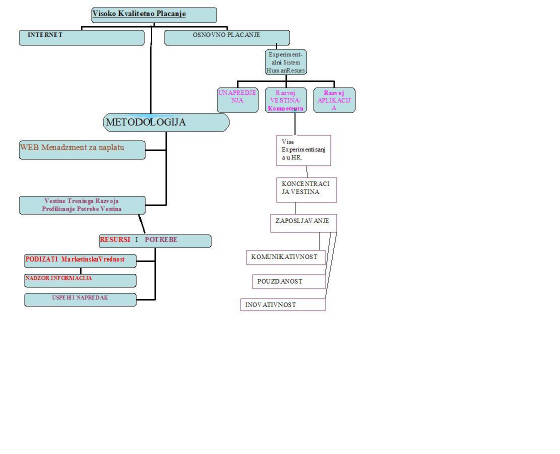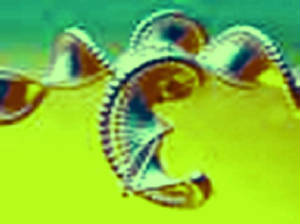|
Busines COACH
For Fast Forward Busines success
GOALS –Business Results----------
-1)Personal Growth
--Investmement in people
--Development and Training
--Performance management
--Career enhancement
2)COMPELING FUTURE
--Vision
and Values
--Company growth and success
--Company image and reputation
-- Win-win over time
3)Total Pay
- -Base pay
--Variable pay (cash and stock)
--Benefits on indirect pay
--Recogniton and celebration
4)Positive workplace
--People focus
--Leadership
--Colleagues
--Work it self
--Involvement
--Trust and commitment
--Open Communication
| HUMAN RESOURCE |

|
| Fast Forward |

Humano
urbana mreza
Aktivnosti :
I oblast – ‘Networking’
sa organizacijama koje se bave ranjivim (vulnerabilnim) grupama
II oblast - Osnovne aktivnosti
Ø
edukacije i radionice za psihosocijalno savetovanje
Ø
saradnja sa udruzenjima ranjivih grupa
Ø
trening za trenere/ice – podrska , savetovanje za ranjivu populaciju
Ø
umrezavanje udruzenja (vulnerabilna populacija )
Porodicni , individulani nivo:
Ø
istrazivanje nivoa porodicne i individualne problematike u vezi sa traumazicijom
Ø
suocavanje sa gubitcima (proslost) i susret sa izazovima (buducnost)
Ø
smanjivanje traumatizacije i transgeneracijskog prenosa :
Ø
episkript, script, neverbalno, verbalno , uticaj na pojedince ;
Ø
arhive memorije : narativni , etno-sistemski pristup
Psihosocijalna pomoc , savetovanje za traumu :
·
Suportatitvne delatnosti za ranjive grupe
·
Individualni slucajevi (metod prilagodjen pojedincu )
-
PTSP (posttraumatski stresni poremecaj i posledice ) ,
-
Sekundarna traumatizacija clanova porodice
-
Zavisnost, posledice
-
Depresije (srednja, laka simptomatologija, kombinovana)
-
Poremecaji ishrane
-
Problemi adolescencije ,
-
Konflikti u porodici, na poslu , u komunikaciji
o TA Modalitet - Transakciono analiticki
modalitet [www.itaa-net.org]
Edukacija i savetovanje: koordinatori projekta, rukovodstva, strucni timovi
profesionalnih organizacija za psihosocijalni servis gradjana Beograda
Usluge savetovanja, psihoterapije, podrška.
Psihoterapijska i savetodavna pomoc – Transakciono
Analiticki modalitet;
Metod Tavistok klinike-London- post traumatski stresni
sindrom i posledice (problemi ishrane, porodični konflikti, krize adolescencije)
Podrska :
q Clan ITAA
(E.Busarac)–
Medjunarodna asocijacija za Transakcionu analizu
International Transacional analysis Association
:
www.itaa-net.com
q ITP –
Institut za Transpersonal psihologiju
[Institute for Transpersonal Psychology]
q Sociology
on line : http://www.trinity.edu/
| HUMAN GENOM |

|
| DNA , high resolution picture |
POREMECAJ EKSTREMNOG STRESA
DISORDER OF EXTREME STRESS
Post TRAUMATIC Stress DISORDER * D E F I N I T I O N *
Post-Traumatic
Stress Disorder (PTSD) is an anxiety disorder that can develop after exposure to a terrifying event or ordeal in which grave
physical harm occurred or was threatened. Traumatic events that may trigger PTSD include violent personal assaults, natural
or human-caused disasters, accidents, or military combat.
Among those
who may experience PTSD are military troops who served Serbia and Monte Negro,and
in the Kosovo; rescue workers involved in the aftermath of disasters like the NATO attacks on Serbia night bombing; survivors
of accidents, rape, physical and sexual abuse, and other crimes; immigrants fleeing violence in their countries; survivors
of earthquakes, floods, and hurricanes; and people who witness traumatic events. Family members of victims also can develop
the disorder. PTSD can occur in people of any age, including children and adolescents.
The disorder
also has been detected among veterans of the War, with some estimates running as high as 10 percent . More than twice
as many women as men experience PTSD following exposure to trauma .
Depression,
alcohol or other substance abuse, or other anxiety disorders frequently co-occur with PTSD. The likelihood of treatment success
is increased when these other conditions are appropriately diagnosed and treated as well. Complex PTSD
Complex PTSD
Complex PTSD (sometimes called "Disorder of Extreme Stress") is found among individuals who have been
exposed to prolonged traumatic circumstances, especially during childhood, such as childhood sexual abuse. Developmental research
is revealing that many brain and hormonal changes may occur as a result of early, prolonged trauma, and contribute to difficulties
with memory, learning, and regulating impulses and emotions. Combined with a disruptive, abusive home environment that does
not foster healthy interaction, these brain and hormonal changes may contribute to severe behavioral difficulties (such as
impulsivity, aggression, sexual acting out, eating disorders, alcohol/drug abuse, and self-destructive actions), emotional
regulation difficulties (such as intense rage, depression, or panic) and mental difficulties (such as extremely scattered
thoughts, dissociation, and amnesia). As adults, these individuals often are diagnosed with depressive disorders, personality
disorders or dissociative disorders. Treatment often takes much longer, may progress at a much slower rate, and requires a
sensitive and structured treatment program delivered by a trauma specialist.
Symptoms
Many people
with PTSD repeatedly re-experience the ordeal especially when they are exposed to events or objects reminiscent of the trauma.
Anniversaries of the event can also trigger symptoms. People with PTSD also experience emotional numbness and sleep disturbances,
depression, anxiety, and irritability or outbursts of anger. Feelings of intense guilt are also common. Most people with PTSD
try to avoid any reminders or thoughts of the ordeal. PTSD is diagnosed when symptoms last more than one month.
Symptoms associated with reliving the traumatic event:
-Having bad
dreams or nightmares about the event or something similar
-Behaving or
feeling as if the event were actually happening all over again
(these are known as "flashbacks") .
-Having a lot
of emotional feelings when reminded of the event .
-Having a lot
of physical sensations when reminded of the event (e.g. heart races, pounds, or "misses a beat"; sweating, difficulty breathing,
feeling faint, feeling a loss of control)
Symptoms related to avoidance of reminders of the traumatic event:
Avoiding thoughts,
conversations, or feelings about the event .Avoiding people, places, or activities that associated with the event .Having
difficulty remembering some important part of the event
Changes frequently made after the event:
-Loss of interest
in things that once were considered important
-Feeling "detached"
from people and finds it difficult to trust people
-Feeling emotionally
"numb" and finds it hard to have loving feelings even toward those who are emotionally close .
-Difficulty
falling or staying asleep Irritable and angry
-Difficulty
concentrating .
-Feeling that
one is not going to live very long and there is no reason to plan for the future
-Feeling easily
startled Always "on guard"
Medical or emotional problems:
-Anxiety (panic) attacks
-Stomach problems
-Intestinal problems
-Gynecological problems
-Weight gain or loss
-Chronic pain (e.g. back, neck, in women-pelvic area)
-Problems getting to sleep
-Problems staying asleep
-Headaches
-Skin rashes and other problems
-Irritability, "short fuse", "quick temper", other anger problems
-Nightmares
-Depression
-Lack of energy, chronic fatigue
-Alcoholism and other substance use problems
-General anxiety
Predsednik Nacionalne komisije za Mentalno Zdravlje-Beograd, Prof. Dr. Psihijatrije,
Beograd ),
Prof. Dr. Natale Losi (Odeljenje za Psihosocijalne i kulturne integracije IOM Rim - Psychosocial and cultural integration Unit -International
Organisation for Migration - IOM Rim, Italija)
Dr.Nevena Čalovska Hercog , Institut za Mentalno zdravlje,
Beograd, IOM Beograd
Prof. Ana Čekerevac , Fakultet Političkih
Nauka, Beograd
Dr. Smilja Janjatović Pugliese, Psychosocial and cultural
integration Unit, IOM Rome
Dr. Dragana Nalić, psihijatar, Dom zdravlja
Voždovac, Beograd
Ass. Prof. Vesna Petrović , Filozofski Fakultet, Odsek
za psihologiju, Univerzitet u Novom Sadu
Prof. Miroslav Krstić , Dr. Prof. Psihologije ,
Filozofski Univerzitet u Prištini, odsek za psihologiju, Psihijatrijska klinika Nis
Dr. Vesna Pajević , lekar’interna med. , Kragujevac
Lidija Marković , psiholog , Centar za socijalni
rad , Zaječar
Milena Maksimović , Margistar klinički
psiholog, Zdravstveni centar, Valjevo
Prof.Gordana Mitić , Prof. Dr. Sociolog , Univerzitet u Kragujevcu, Ekonomski fakultet
Predlozen pristup i principi u ostvarivanju i realizaciji
projekta su :
1) Izgradnja kapaciteta - podsticanje umrezavanja
2) Postuliranje modela “Od individualnog ka kolektivnom iskustvu”
3) Kulturoloska osetljivost i pristup zasnovan na zajednici
4) Stvaranje snazne i dugorocne mreze u ovoj oblasti relevantnih
profesionalaca i institucija
5) Smanjenje rizika negativne evolucije i mogucnosti nastanka
hronicne traume
Finilizirajuci drugi turnus ovoga projekta bice izdata publikacija sa pregledom svih
prikupljenih podataka.
Na kraju treceg I svakog novog turnusa istrazivanja traumatizovanosti ce biti objedinjena publikacijom ukljucujuci
novonastale podatke .
Procena potreba za Psihosocijalno
savetovanje : Zemun, Novi Beograd
Saradnja :
Prvi Deo PROGRAMA Besplatne
pomoci i Edukacije odrzavan je do meseca novembra 2005. u formi GRUPNE
PsihoSocialne Terapije (14 do 20 osoba).Osim
post stresnog sindroma ,
materijalni momenat dominira ( nizi
socijalni krug)
Humano urbane mreže
»Udruženja porodica palih boraca ratova 1990-99.god«.
»Udruženja porodica palih boraca- Krajina«
Opstina Zemun
Na
sastanku održanom u prostorijama Udruženja porodica Palih Boraca. U Zemunu održanog 20. septembra
2005.god. u 14.00h. doneti su okvirne smernice zajedničke saradnje.
Aktivnost je u grubim crtama podeljena
na tri tačke
· Analiza - Skala oštećenja (PTSP)
· istrazivanje i evaluacija
1)
Analiza-skala –oštećenja koja se deli na dva dela :
I-
pokriva detinjstvo i mladalaštvo ; II-period života odraslog doba. Pitanja procene koliko je ozbiljno narušena vaša slika o sebi iskustvom odrastanja u problematičnoj
porodici i slika (percepcija) vaše sredine.
2)
Anketa - posebno osmišljena (15 pitanja ) i analiza .
-
prezentacija potreba istrazivanja i cilja ankete,
-
savetovanje porodice
-
sekundarna traumatizacija (struktuisani interviju, skala ostecenja
)
Anketa podrzaumeva i osnove o
prezivljenoj traumi : faze traume , obrada kroz »PTRP resetka« i analizu sadrzaja ;
· Komparativne analize
rada sa 2 Udruzenja vulneraibilnih grupa i njihovih porodica .
Tri istraživačka polja :
-
Psihosocijalna kvalitativna istraživanja : Zastupljenost
PTSP među izbeglim i raseljenim licima iz Hrvatske , Bih , Kosova , sa uvidom
u sledeće nivoe subsistema po socijalnim pokazateljima ; podela upotrebom nekih
PS (psihosocijalnih ) modalitetata za istrazivanje .
-
Ekonomski status – izbeglički status ,
ostvarena penzija , ostvareno penziono i socijalno osiguranje , rad »na crno«
; ostavarena radna , socijalna prava .
-
Zdravstveni status kao važan psihosomatski okvir
PTSP-ja – da li je klijent zadovoljan lečenjem, kakvo je zdravstveno stanje , da li se dijagnoze , ako ih ima ,
povezuju sa preživljenom traumom ili stresom
-
Priprema »art radionica« kao i subsistema u okviru art terapije :
KAKO JE NASTALA HUMANO URBANA MREZA
Beograd
PRVI privatni SRPSKI
beogradski SERVIS za POBOLJSANJE KVALITETA
ZIVOTA,
starih, bolesnih i ugrozenih grupa gradjana.
PETNAESTOGODISNJE ISKUSTVO U Humanitarnoj
(psihosocijalnoj) oblasti u osiromasenoj Srbiji uTranzicionom lavirintu
U PROSLOM VEKU i PROSLOM MILENIJUMU.
(Beograd
14 jun 1991/ dnevni list: Politika / strana14.)
|

